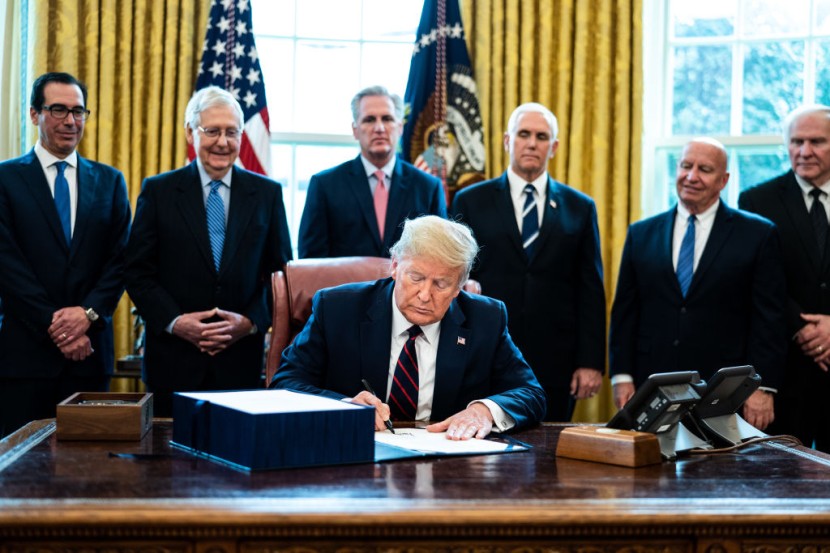
News regarding the income qualification of a second stimulus check and the amount that had been confirmed was seemingly untimely. In reality, while a 2nd direct payment was involved in the proposal summary dissemminated by Republicans, no further explanation was provided.
Recessions are a difficult matter to go through, but nothing could have prepared a worker for the financial toll brought up by the COVID-19 pandemic. The United States' unemployment rate (11.1%) remains at levels not steadily witnessed since the 1930s. The bounce from state-level non-essential business closings has fared slower than anticipated.
On Monday, Senate Republicans will unveil their plan for the next economic rescue package expected to be named CARES 2 and will include the said second stimulus check. The amount of money it will consist of is still unknown.
The question posed to the public is if they will meet the eligibility qualifications under the Senate's CARES 2 proposal, reported CNet.
It is not yet made known if the second check will be higher or lower than the amount of the first check's $1,200 maximum or if the same individuals will be eligible.
There is a distress that the novel coronavirus' economic impact is far from over with confirmed cases of the coronavirus mounting in numerous states, indicated Tom's Guide. Also, federal unemployment benefits are slated to diminish.
The $600 increase to weekly unemployment is slated to be terminated this month. The enhanced unemployment benefits and first stimulus check were permitted by the CARES act, reported Forbes.
The top headline numbers are as follows:
Republicans: $1 trillion worth of stimulus package expected
Democrats: $3 trillion worth of Heroes Act stimulus package has passed House of Representatives but not in the Senate yet
There has been widespread postulation if a second stimulus check would be implemented as part of the said COVID-19 stimulus package proposal. The majority of Republicans now concede that such a payment is necessary due to the recorded number of confirmed COVID-19 cases in the United States and the aggravating economic situation after withstanding another direct payment.
The CARES Act more than doubled the relief legislation's cost which was passed amid the financial dilemma under the Obama-led government at the amount of $2.2 trillion. The act provided $100 billion to hospitals, allocated about $350 billion for small business loans, allocated $260 billion to enhance unemployment benefits for a four-month period (between April 1, 2020 and July 31, 2020), and set aside $500 billion for distressed industries.
Legislation could allocate unemployment relief and extra cash, but financial assistance could be limited to lower-income workers. However, a number of senators has resisted against the idea.
The new check is anticipated to follow the initiation of the first stimulus check and provide a maximum of $1,200 for people and $500 for dependents. Factors including annual taxable income, age, citizenship, marital status, and the total of family dependents will be evaluated to determine who will be eligible.
According to Senate Majority Leader Mitch McConnell, "The Senate majority has assembled a framework for CARES 2. The administration has requested additional time to review the fine details, but we will be laying down this proposal early next week. We have an agreement in principle on the shape of this package."








